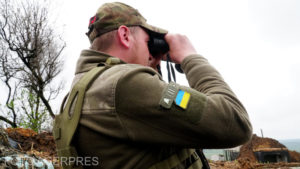Many of the residents have reported on social networks long and powerful blasts. But a different kind of noise has produced among the North Atlantic Alliance, the former US Republican president Donald Trump, whose comeback to the White House has become more and more plausible. Even his Republican colleagues have criticized him after he said the United States should not defend the allied countries which do not pay their NATO contributions.
The former president also criticized the countries which do not invest enough money in their defence in the past years as well, but now he shocked the allies by saying that he would ‘encourage’ Russia to attack countries, which do not pay their bills. His statements have attracted a lot of heat from the incumbent Democratic President Joe Biden and NATO Secretary General Jens Stoltenberg, who underlined that such suggestions are undermining the Alliance’s entire security, which is based upon common defence and are endangering the US and European troops.
According to various publications, Trump has for years now inaccurately described the way in which NATO funding is functioning. The alliance has established a 2% of the GDP target for each member country and most countries do not clear this target. The figure though is only a recommendation and not a mandatory contract, no ‘bills’ have been issued and no bills are overdue concerning the NATO budget.
In the meantime, on Sunday, the Alliance’s newest member, Finland elected a new president in the person of the former conservative Prime Minister Alexander Stubb who has been a supporter of the North Atlantic Alliance after Russia invaded Ukraine and his country renounced its strict neutrality. A Prime Minister between 2014 and 2015, Stubb has confessed that one of his biggest mistakes as head of the government in Helsinki was to give the green light for the construction of a nuclear power plant in cooperation with the Russian company Rosatom.
Romanian president Klaus Iohannis has immediately congratulated his Finnish counterpart voicing his eager readiness for cooperation and the development of the tight European partnership between Romania and Finland, to defend together their Euro-Atlantic values.
Eugen Cojocariu, RRI











